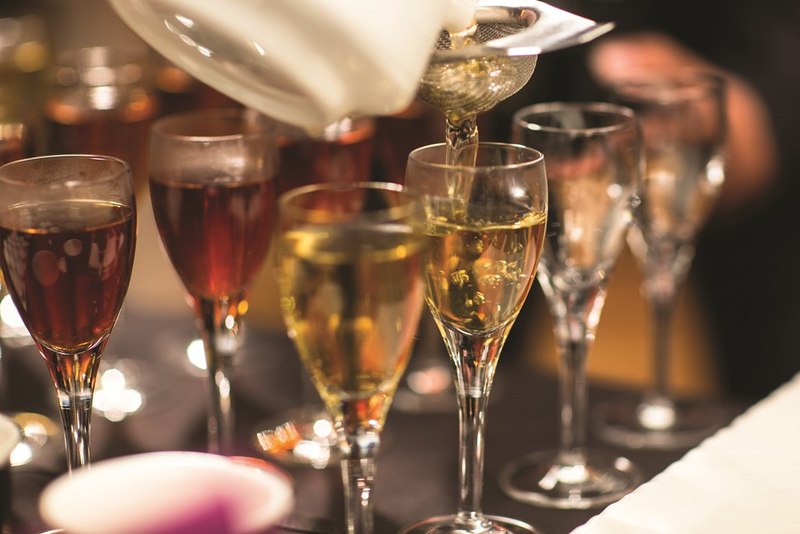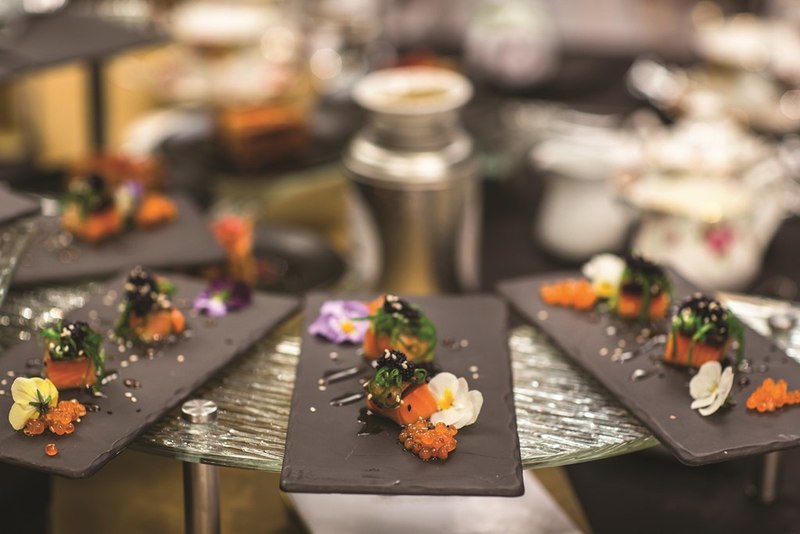Tea Inspiration for the 21st Century is Dilmah’s latest revolutionary concept aimed to revive ancient herb to mass culinary culture.

Prized for more than five millenia, tea is a unique herb that inspires many culinary traditions around the world. Nowadays, tea is not only an everyday drink but also its own culture in modern civilisation.
Whether making a morning beverage from tea bag or having a high tea occasion in the afternoon with colleagues, tea has inspired multiple industries around the world—in hospitality, gastronomy, and mixology—to appreciate tea characters and create culinary innovations using these humble herbs.
Tea’s aroma, texture, and natural goodness are revived by discovering its versatile profile to adapt in diverse range of culinary creating including tea pairing. Through the art of brewing tea, people get a chance to experience the ancient herb in different ways as the art of tea making that many people know these days.
During the Tea Inspiration for the 21st Century, Sri Lankan brand Dilmah carried out its mission to introduce tea culture to Indonesian audiences during the event from 19 to 21 August. In addition to organising competitions which unveiled the Papilion Jakarta as ‘best of the best’ winner, the event helped spread the creative idea of enjoying tea by knowing its dimensions and its nature.
Dihlan C. Fernando, CEO Dilmah want people know how to treat the magnificent herb as a recipe for morning, daytime or afternoon occasion. Tea as an herb can be presented through seven dimensions such as a cultural, personal, culinary, mixology, sustainability, tea and harmony to be implemented beyond the cuppa itself.
“Indonesia is a country that has a long history with the herbs with a potential exploration to develop its rich culture through the tea making and pairing. We invite the culinary professional who will help us to unveil the tea innovation,” says Fernando, a son of Dilmah founder Merrill J. Fernando in Jakarta event at Pullman Hotel Thamrin.
The inclusion of specific cultural attributes, emphasizing local tradition, cultural and historical heritage along with a personal dimension would add authenticity element. The culinary dimension requires the use of quality ingredients and technique for an outcome that achieves all sensory aspects of the food. The importance of prioritizing the tea dimension is aimed to achieve presentation with respect for its specific characteristics in relation to its appearance, aroma, taste, and texture. “Most importantly, we have to respect the nature of the tea which brings harmony to life, We have to treat it carefully to keep the real character as natural elixir which have a benefit for therapeutic and digestion,” Fernando said.
Tea Pairing
Many people are more familiar with coffee and wine pairing. Paying attention to tea dimension is important to be able to experience the balanced way of pairing with light, medium and strong flavour of dishes.

Feri Sulfian, Pastry Chef at Pullman Thamrin explained that savoury dishes such as bread, croissants and salmon sashimi can be paired with light tea including chamomile and white tea. A concoction of chicken dishes with medium taste note is the best paired with early grey and jasmine tea, A heavy strong dishes such as Indonesian satay or beef rendang are great with a black tea.
For sweet dishes or desserts, tea is used to be a part of the ingredients when the handpicked herbs are infused in the dough. For example, if the cake is made with with an infusion of Earl Grey, the paired tea must be in the same type to match the character profile. The high level of sweetness can be balanced with bitter tea flavours.
In Indonesia, tea beverage is also a simple drink which can be found anywhere with lack of innovation. In most restaurants and other dining establishment, patrons are used to paired tea with random dishes without caring its tea characters. The most popular concoction of this typical beverage in Indonesia are hot tea, sweet tea, iced tea and fruit tea. For some restaurants, they also provide peach and lychee tea on the menu.

Eliawati Erly, Vice President of F&B distributor PT David Roy Indonesia said that Indonesian people have personal experience with tea where everyone order tea as the common beverage during meal time. On the other hand, there are no specific tradition to enjoy tea in the best way possible. “Knowledge about tea is still limited and I think it’s really important to expand people's knowledge about the type of tea and how to enjoy it,” Erly said.
Innovative Pairing
During the competition from 19 August, many creation has invented from professionals who joined the competition. Judged by Dilhan Fernando himself, chef Chandra Yudaswara, mixologist Tomek Malek, and celebrity chef Peter Kuruvita, the competition has unveiled culinary creation that reflects local culture as well as the tea character.

The dishes include the creative pairing of Klungkung, Balinese satay served with Peached tea and Javanese dessert Klepon cake infused with ceylon tea. There are also teh Pletok, Teh Rujak mangga, and Solo Pink Ice Tea.
Many Indonesian hospitality and F&B brand have won the competition by winning bronze, silver, and gold medals. The gold medalist The Papilion Jakarta will be sending their representative to Sri lanka to attend Dilmah School of Tea there and get a chance to participate in international competition.
In the following month, Dilmah’s Tea Inspiration for the 21st Century will continue to hold the event across the continents including Singapore, Thailand, Australia, and Chile.
For more information about Tea Inspiration for the 21st Century, visit the official website on www.dilmahtea.com






